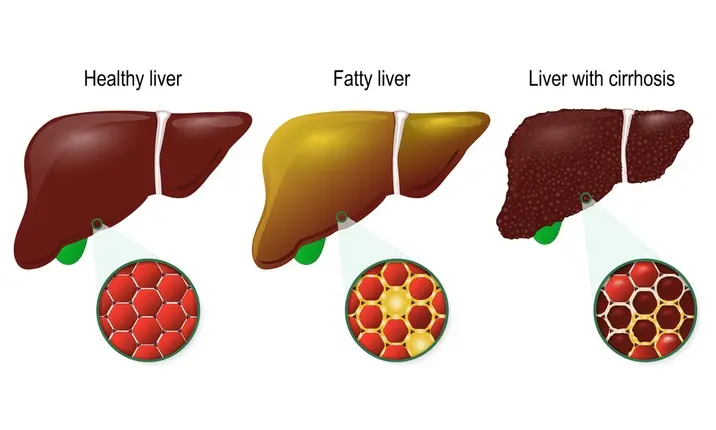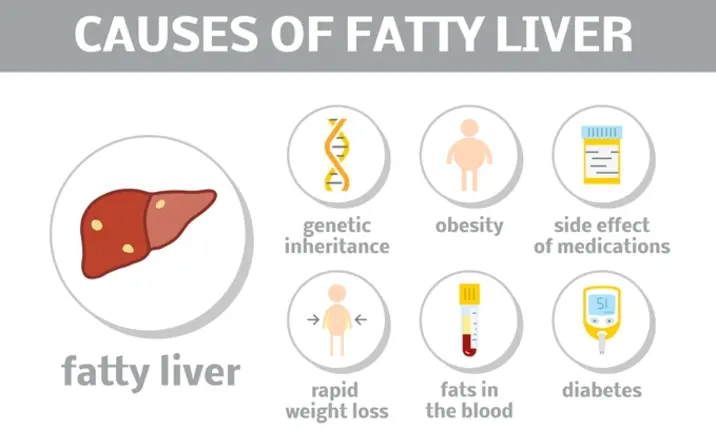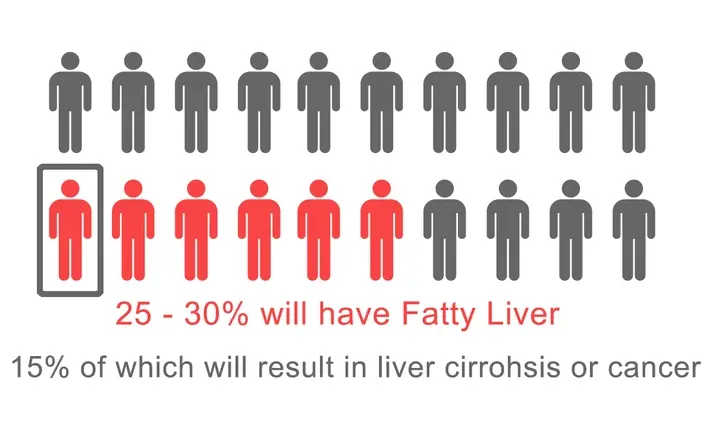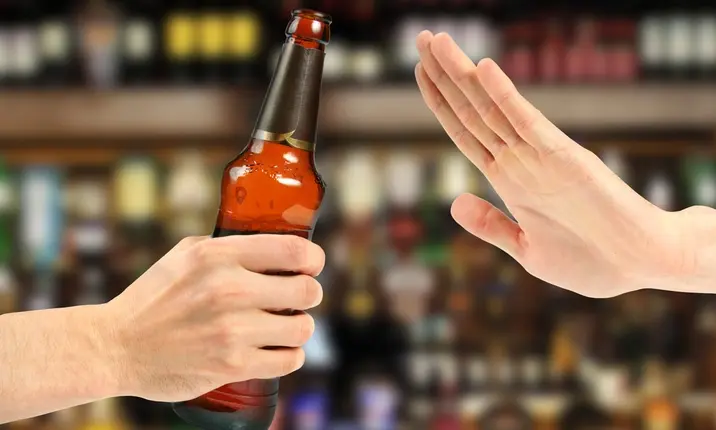What happens when the liver stops functioning correctly? What is fatty liver, and how does it affect your overall health?
Unlike the tummy, intestines, heart or lungs, not many people know what the liver really does. Here, we reveal the truth behind some common myths.
What does the liver do?
Think of your liver as a factory. It controls everything from production and processing to storage and elimination, performing over 500 important tasks and kick-starting several thousand chemical reactions every day.
Among its main functions are converting the nutrients from our food into energy, producing the proteins and antibodies our body needs, and storing these substances until your body is ready to use them.
Dr Lui Hock Foong, gastroenterologist at Gleneagles Hospital, breaks down the most persistent myths about this condition and shares the facts you really do need to know.
If you've concerns about your liver, don't hesitate to speak to a specialist.
Myth 1: Fatty liver isn't dangerous
Fatty liver, as the name suggests, refers to a build-up of fat in the liver. While a healthy liver contains small amounts of fat, a build-up of fat amounting to more than anything over 5% of your liver’s weight can lead to fatty liver disease.
Many people with fatty liver don't even know they have the condition. Sometimes, it causes no problems at all. But that doesn't mean you should ignore it. Why? This is because a build-up of fat damages your liver cells and causes inflammation.
Your liver is the only organ in your body that can regenerate itself by replacing old, damaged cells with new ones. As your liver struggles to get rid of the fat, scar tissue builds up, making it difficult for your liver to transport nutrients around the body and increasing pressure in the surrounding veins.
In time, fatty liver can increase your risk of more serious conditions including cirrhosis (scarring of the liver), liver disease and liver cancer.
Liver cirrhosis
Liver cirrhosis may be attributed to a variety of causes including chronic alcohol abuse, chronic viral hepatitis, accumulation of fat in the liver, and iron build-up in the body. It may also be caused by some medical conditions such as cystic fibrosis, biliary atresia, and certain genetic disorders.
Symptoms of liver cirrhosis
Signs and symptoms of liver cirrhosis are often only manifested when liver damage is extensive. These include:
- Fatigue
- Easily bleeding or bruising
- Loss of appetite
- Nausea
- Swelling of legs, feet or ankles
- Weight loss
- Itchy skin
- Yellowing of skin and eyes
- Accumulation of fluid in the abdomen
- Spiderlike blood vessels on the skin
- Redness in the palms of the hands
Potential complications from liver cirrhosis include bruising, bleeding, kidney failure, liver cancer, diabetes and eventually, liver failure.
Liver cancer
There are different types of liver cancer, with the most common being hepatocellular carcinoma, while other forms are rare.
Liver cancer can develop from chronic hepatitis infections or liver cirrhosis, or you may have underlying health conditions that increase your risk for developing liver cancer such as diabetes or inherited liver diseases. Other risk factors include exposure to certain toxins and excessive consumption of alcohol.
Symptoms of liver cancer
Early stages of liver cancer usually do not result in symptoms. However, in its later stages, symptoms may include:
- Unintentional weight loss
- Loss of appetite
- Pain and/or swelling in the upper abdomen
- Nausea
- Vomiting
- White, chalky stools
- Yellowing of the skin and whites of the eyes
- Weakness and fatigue
Myth 2: Alcohol is the main cause of fatty liver
There are several factors that contribute to fatty liver, and excessive alcohol consumption is only one of them. Whether you feel dependent on alcohol or not, drinking anything over the recommended 'safe limit' may put your body at risk of fatty liver.
"The safe limit for men and women is 14 units of alcohol per week," clarifies Dr Lui. "A unit of alcohol corresponds to 1 small glass of wine (125ml), 1 shot of hard liquor or half a pint of beer."
Causes of fatty liver
While overconsumption of alcohol can cause fatty liver, other non-alcoholic factors may also put you at risk of developing the condition.
These include:
- A high-fat, high-sugar diet. If you are overweight or have diabetes, your risk of developing fatty liver is more than 30%.
- Family history of fatty liver
- Rapid weight loss
- Taking certain medications regularly, such as steroids
What is non-alcoholic steatohepatitis?
Non-alcoholic fatty liver sometimes develops when the liver naturally struggles to break down fats, which can lead to non-alcoholic steatohepatitis (NASH), or swelling of the liver.
NASH is a form of non-alcoholic fatty liver disease in which inflammation of the liver (hepatitis) and liver cell damage are present in addition to fat in the liver. People with non-alcoholic fatty liver disease are more likely to have NASH if they have one or more of the following conditions:
- Obesity, especially large waist size
- High blood pressure
- High levels of triglycerides or abnormal levels of cholesterol in the blood
- Type 2 diabetes
Symptoms of non-alcoholic steatohepatitis (liver inflammation):
NASH is often a silent disease with few or no symptoms. If symptoms are present, they may manifest as feeling tired or having discomfort at the upper right side of the abdomen. Left untreated, NASH can lead to complications, such as liver cirrhosis or cancer.
Myth 3: Drinking hard liquor is worse than drinking beer or wine
Contrary to popular belief, the type of alcohol you drink doesn't make a difference – what matters is how much you drink.
"The safe limit is fixed at 14 units a week," explains Dr Lui. "Below this limit, alcoholic fatty liver is less likely to occur. If you regularly go above this limit, you are more likely to do yourself harm."
Binge or heavy drinkers are more likely to have an increased risk of liver damage caused by alcohol.
Myth 4: Fatty liver disease is a rare condition
Unfortunately, fatty liver is becoming more and more common worldwide. Unhealthy diets, binge drinking culture and a higher rate of obesity in many countries may be contributing factors for this.
"The new epidemic of liver disease is fatty liver," says Dr Lui.
"About 25 – 30% of the general population may have fatty liver, and of these, around 15% have the more serious type that can lead to cirrhosis and cancer."
"Fatty liver is still less common in Singapore than in other countries, perhaps because alcohol is more expensive here, but that doesn’t mean we should ignore the risks. In the USA, fatty liver is now the second most common reason, and will soon become the most common reason, for liver transplantation. We need to be thinking about our lifestyles and diets so that we can prevent something similar happening here."
As fatty liver disease is more common than you think, it is important to adjust your lifestyle habits to reduce your risk of developing the condition.
Myth 5: Fatty liver disease cannot be reversed
Although there is currently no medication to treat fatty liver, certain lifestyle changes can prevent it from getting worse and even reverse the condition.
As fatty liver is associated with certain health conditions such as diabetes and high cholesterol, getting the right treatment to manage these conditions, avoiding alcohol and keeping to a healthy weight can help to reduce further damage.
Lifestyle changes to reduce the risk of fatty liver:
- Avoid alcohol as it puts extra stress on the liver
- Reduce your sugar intake
- Cut out fatty foods and go for a healthy plant-based diet to keep your cholesterol and triglycerides at healthy levels
- Exercise regularly
- Maintain a healthy weight
- Monitor your blood sugar levels
If you are overweight or obese, try to lose weight by reducing the number of calories you consume each day and increasing your physical activity.
"Eating a healthy diet with plenty of fresh fruits, vegetables, whole grains and lean meats like chicken and fish can make a big difference in managing the condition," says Dr Lui.
Myth 6: Women are more likely to develop fatty liver
Last but not least, both men and women are equally susceptible to developing fatty liver disease.
"While this was thought to be the case in the past, present studies point to equal risk for both men and women," clarifies Dr Lui.
Therefore, it is essential to manage your lifestyle and eating habits regardless of your gender.
If you're concerned about your risk of fatty liver or want more lifestyle tips to maintain good liver health, speak to a gastroenterologist.





